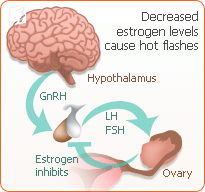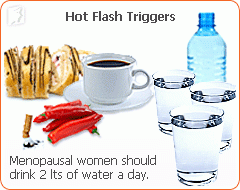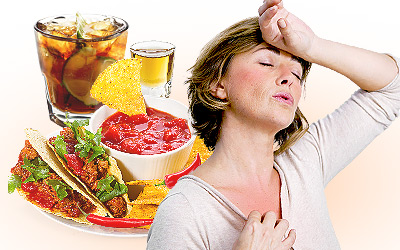
Hot flashes symptoms are one of the most common symptoms menopausal women experience. Nearly 70% of women have hot flashes and say that their symptoms can be very problematic. You can manage them better and make your transition through menopause easier by understanding hot flash symptoms. Read on to find out more.
What Are Hot Flash Symptoms?
Hot flash symptoms encompass a variety of sensations, all related to body heat. They may include a feeling of intense heat in the upper part of the body, particularly the head, neck, and chest and are usually accompanied by a rapid heartbeat and excessive sweating. Hot flash symptoms can also include chills, nausea, and anxiety.
Researchers have classified hot flashes into the following categories:
Mild: barely noticeable, quick to pass, not interfering with daily life.
Moderate: warmer, noticeable (with obvious perspiration), and longer-lasting.
- Severe: intensely hot to the point where you may stop what you're doing to seek immediate relief.
The duration, frequency, and intensity of these hot flashes symptoms vary from woman to woman. Typically, a hot flash episode lasts between thirty seconds and five minutes. It is believed that the faster a woman makes the transition from regular menstrual periods to no periods at all, the more significant her hot flash symptoms will be.
What Causes Hot Flash Symptoms?

It's generally accepted that the main reason for hot flashes is the fact that the hypothalamus (part of the brain that controls body temperature) mistakenly believes that the body is overheated. Decreased estrogen levels that occur during the menopausal transition are responsible for malfunction of the hypothalamus, the overproduction of heat, and subsequent hot flash symptoms.
Hot flashes symptoms can become problematic if menopausal women don't manage them appropriately.
How Can I Control Hot Flash Symptoms?
The following tips can help you to manage hot flashes symptoms effectively:

- Eat a diet rich in protein, fiber, fruits, vegetables, and grains.
- Avoid alcohol, caffeine, sugar, spicy foods and hot soups.
- Drink 2 liters of water every day.
- Add herbal supplements to your diet.
- Exercise regularly.
- Stop smoking.
- Dress in thin, removable layers.
Read more about hot flashes and how to treat them, follow the links below.
Sources
- "Hot flashes ... in January". Canadian Medical Association Journal. 2004: 170 (1).
- Miller, Heather and Rose Maria Li, M.D. "Measuring Hot Flashes: Summary of a National Institutes of Health Workshop". Conference report. Mayo Clinic. June 2004: 79.
- Sikon, Andrea and Holly Thacker M.D. "Treatment for Menopausal Hot Flashes". Cleveland Clinic Journal of Medicine. July 2004: 71 (7).



